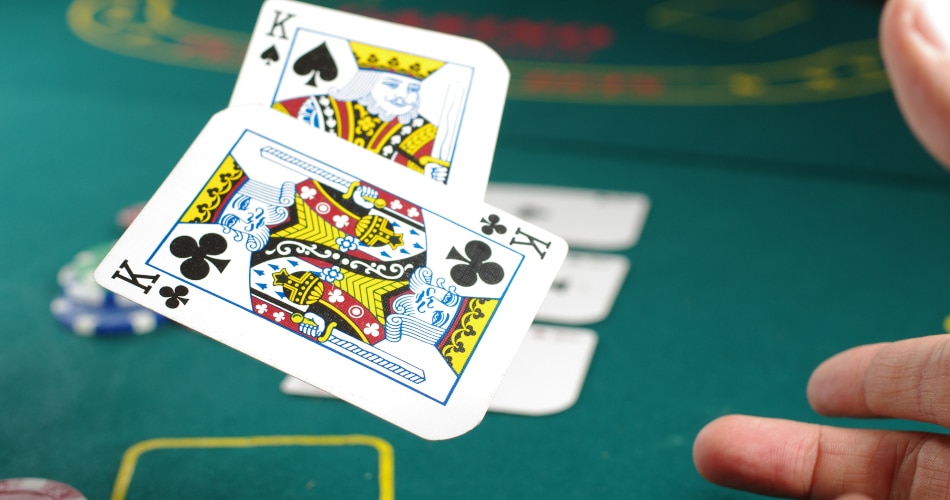
The Betting and Gaming Council (BGC) has issued a statement criticising the UK Government’s decision to close all casinos and betting shops in Lancashire due to a spike in Covid-19 cases.
Last week, the Government placed Lancashire in Tier three of its coronavirus restrictions, meaning the entire area is subject to strict lockdown measures. The measures include the closure of all Lancashire casino venues and 200 betting shops, all of which employ around 1,000 staff.
As reported by the BGC, the betting shops affected pay around £24 million in tax a year while the three Lancashire casinos contribute £6 million a year in tax. Betting shops also contribute a further £6.6 million through horseracing via levy and media rights payments.
The Government’s decision comes after it placed the Liverpool City region in Tier three too, closing 350 betting shops and six casinos, which together employ around 2,300 people. However, while gyms and leisure centres in Liverpool have been ordered to close, they’ve been allowed to remain open in Lancashire despite casinos and betting shops being told to close.
In response to the UK Government’s decision, BGC Chief Executive Michael Dugher has pointed out that there’s no evidence that betting shops and casinos have contributed to the spread of the Covid-19 virus, particularly after being praised for employing anti-Covid measures.
In the statement shared on the BGC website, Dugher said: “We understand that Government’s need to tackle Covid, but they must balance that with the need to protect jobs. From the beginning of the pandemic, betting shops and casinos have played their full role in the national effort to tackle this virus.
“It is therefore hugely disappointing that as they are starting to get back on their feet again, those venues in Merseyside and Lancashire have had the rug pulled from under them.”
He continued: “And given the inconsistencies between the approaches in Liverpool and Lancashire when it comes to gym centres and leisure centres, it gives the impression that the people who make these decisions don’t care about jobs in betting shops and casinos.
“The simple fact is that there is no evidence that closing betting shops and casinos will slow the spread of Covid-19, and any impact from their closure will be negligible. They have followed the public health guidance to the letter, and in many cases have gone above and beyond what is required of them.”
“It means that 3,400 hardworking employees in Merseyside and Lancashire will have to stay at home instead of generating the tax revenue that the Treasury so desperately needs. And horseracing, which receives millions of pounds every year from betting shops, will also see its revenue fall further at a time when it is already suffering because of the ban on spectators.”
He ended the statement by saying: “It is therefore time for the Government to rethink the path it is now on. We hope that those making the decisions will come up with the necessary financial package to ensure these betting shops and casinos have a long-term future. But the best course of action remains allowing them to safely keep their doors open and do their bit to help the UK’s economic recovery.”
Tier measures are expected to be reviewed every few weeks depending on the alert level, which means it could be several weeks before the affected casinos are given the green-light to reopen.
The new lockdown restrictions on parts of England come after First Minister Nicola Sturgeon imposed several temporary restrictions in parts of Scotland, closing dozens of betting shops and casino venues.
Meanwhile, shortly before the tier restrictions were announced, the UK Government implemented at 10 PM curfew across the entire nation, forcing all hospitality venues including casinos and betting shops to close at 10 PM.
The curfew sparked outrage from the gambling industry, as most casino venues do around 70% of their total trade after 10 PM. Before the curfew’s implementation, more than 20 casino venues from around the UK pledged to ban the sale of alcohol in order to keep doors open.
The Betting and Gaming Council has been working with casinos every step of the way and campaigning for them to remain open amid the Covid-19 pandemic, particularly after casinos were some of the final businesses to reopen after the UK’s initial lockdown.
Several gambling brands have already announced job cuts and venue closures across the UK as a result of the pandemic, some of the brands affected include Buzz Bingo, Grosvenor Bingo, William Hill, and Genting Casino.
The news comes after UK gambling charity GambleAware revealed that it received a total of £2.28 million in contributions from the gambling industry between April 1st and September 20, 2020.
Under current UK licensing conditions, gambling operators are required to contribute o.1% of their annual gross gambling yield to the charity. Operators which an annual gross gambling revenue of below £250,000 are required to donate a minimum of £250 per year.
As published by GambleAware, the charity’s highest donor for the 2020/21 period so far is operator Gamesys who contributed a whopping £450,000 to the £2.28 million total. Behind them is operator Betway Limited which contributed £134,000, 888 Holdings which contributed £50,000, Apricot Investments which contributed £40,000, and operator Videoslots which donated £30,000.
Other gambling operators which contributed to the total include Virgin Bet Limited with £5,224, Star Racing which contributed a combined total of £17,739, SkillOnNet which contributed £12,000, and BGO Entertainment which contributed £23,162 to the total.
In addition to the donation list, the charity also published pledges from gambling operators for the same period which includes operator William Hill committing to donating £1,040,000, alongside other companies including Virgin Bet Limited, Roxor Gaming (Gibraltar), Praesepe Holdings Limited, and more.
Finally, GambleAware published a list of regulatory settlements it received in 2020/21 including a settlement of £3,000,000 from William Hill via Mr Green and a £5,800,000 settlement from operator Betway Limited via its Betway brand.